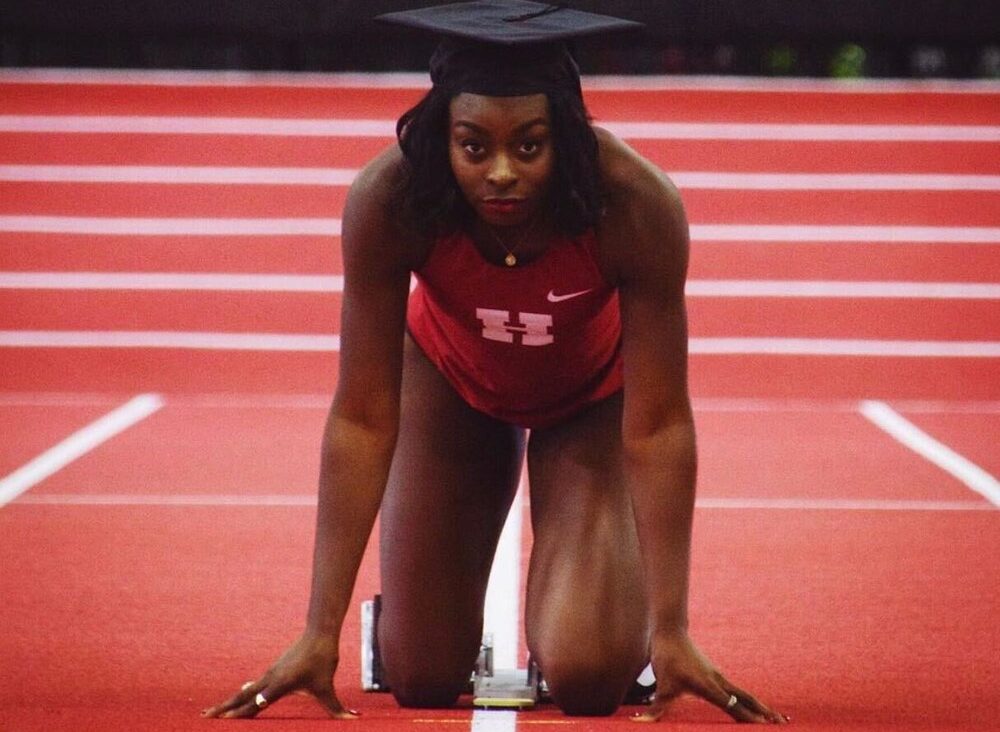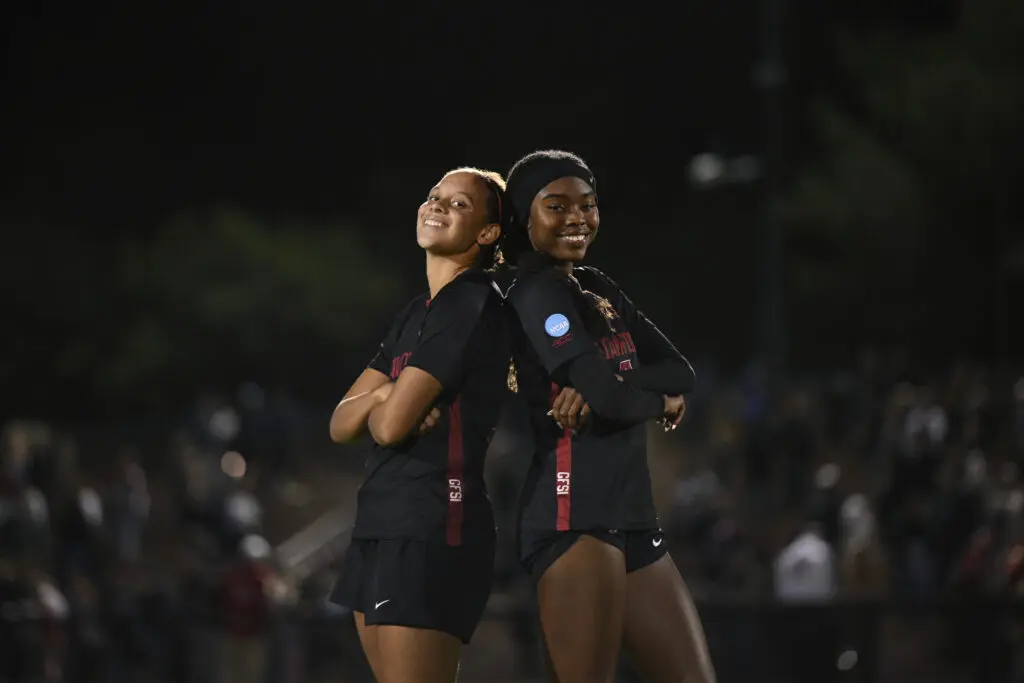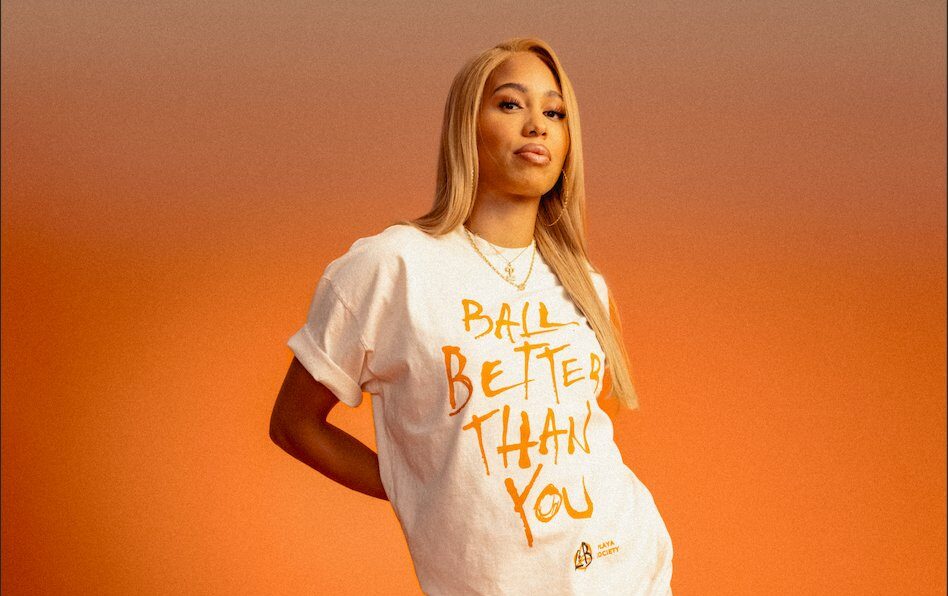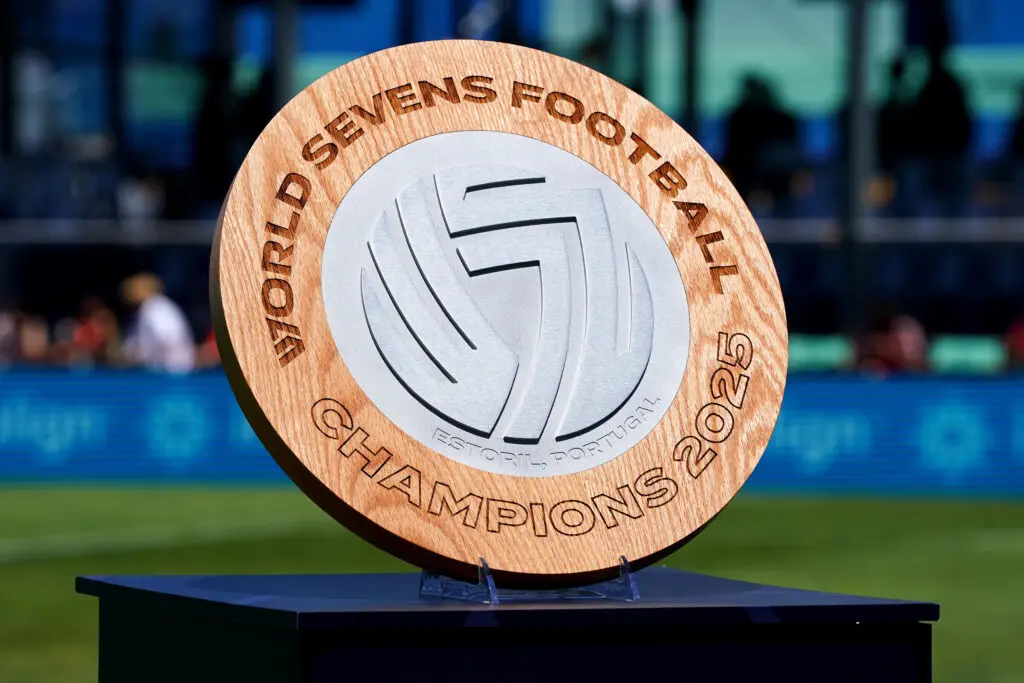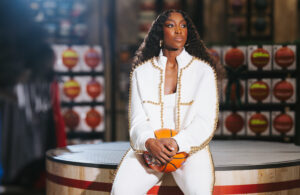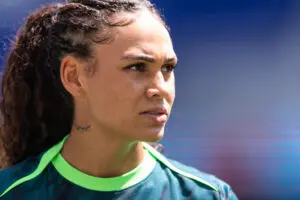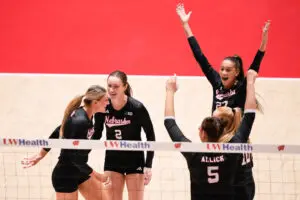Ngozi Musa is a graduate of Harvard University, where she was an All-Ivy League sprinter for the Crimson’s track and field team. She is the founder of Aesthetics & Athletics, a platform and podcast designed to inspire and empower women in sports. We spoke with Musa about the importance of the current moment, why sports can be a platform for social change, and how she’s had to adjust her mindset since entering the professional world.
How have recent events influenced your work, both professionally and personally?
We’re in the midst of a double pandemic. There’s COVID-19, obviously, but we’ve also been in a racial pandemic for over 400 years. Growing up, I put a lot of pressure on myself being a Black woman in an all-white neighborhood. I didn’t fully embrace my Blackness until I was 20 years old. I ran away from my Blackness because I felt like society told me I had to. Everyone has different Black experiences and you can’t blanket an entire group of people. So in terms of everything going on, I’ve had to take a step back.
Two weeks ago, I was supposed to upload a podcast episode on Friday right when everything with George Floyd happened. I had to pause and ask myself, “Okay, why am I doing this?” What value does this podcast add to this moment?” I had to ask myself, “How am I amplifying Black voices?” As a Black woman in sports, I lie at an intersection. I want to create a place in sports for Black women to feel empowered and inspired.
I’ve been trying to figure out exactly how to do that. Two weeks ago, we did a Zoom event where we had a group workout and then had a cultural conversation afterwards. It’s all about the conversation and bringing people together from diverse backgrounds. We have to be willing to meet people halfway — if we stay on our separate sides, we will just keep repeating history. So, I plan on continuing to use my work with Aesthetics & Athletics and with these podcasts to address the current climate.
Can you tell us about the No More Names campaign?
No More Names was started by Chris Egi, who was a Harvard basketball player. When Trayvon Martin was killed, he realized that was the reality for Black men in America and started No More Names in 2018. The idea is that there should be no more names, no more hashtags.
Chris realized that, as a student athlete, you have a platform — no matter how big or small your school is. So, he decided to get former and current student athletes together with No More Names. Now, we have over 2000 student athletes in the GroupMe and have built out onto Slack. No Mores Names, for student athletes, is a way for them to figure out how they can make an impact in their daily lives. It can be overwhelming to think about the whole world changing and how you can play a part in that change. But, if we can all start with our sphere of influence where we can add the most value, then we can continue to adapt and transform the world. Now, we’re talking about, you know, what does this look like in conferences? What does this look like in the NCAA?
Why do you think sports are such a powerful platform for change?
Kareem Abdul-Jabbar said something to the effect of, “Sports are the only place where all races can come together and truly have meaningful dialogue.” I remember being on a club soccer team where I was one of three Black girls on an all-white team. But we didn’t even notice. In that moment, I didn’t even notice race because we were all playing the same sport, we all had the same goal, and we were all working together. In those spaces, I was able to connect with people I probably would have never connected with outside of sports.
We recently celebrated Juneteenth, as a country. You posted about your family history and about being a descendent of slaves. Can you tell us a little more about how your family background has influenced you?
During my senior year, I took a class called Ancestry. I went into the class thinking it would just be a fun class, but it transformed my life. We talked a lot about slavery and the movements of the slave trade. I had known about my family’s ancestry before the course, but I remember one time in class I came to this deep realization that my ancestors were slaves. I knew it, but I was so disconnected from it. I realized that slavery is my history — it’s a part of me.
I started thinking, “Where do I go from here?” Yes, my ancestors walked through the gate to freedom, but we, in America, are still not free. There are still pain and scars and shackles from the slave trade that need to be released. Yes, Dr. King started the Civil Rights movement, but the Civil Rights movement didn’t begin and end with Dr. King. It’s still going.
I am not ashamed of being a Black woman. I am not ashamed to be a Christian. For me, personally, it’s all about having a hope in something greater than myself and having a hope in eternity where we are all equal. Maybe that won’t happen in this world, but we will make progress. We have to continue to fight.
What can people do right now to keep the conversations and progress going?
A lot of people are asking that now. We see it being a social media moment, but how do we make it a social movement? We have to engage, reflect and act.
For me, one of the biggest things is reflecting — you have to reflect on your experience as a human being. What spaces and places are you in? What does it look like? I went to a predominantly all-white school. I’ve lived in a predominantly all-white neighborhood. I have had Black privilege a lot of my life. How am I helping people that look like me but might not have the same socioeconomic background as me?
And then, engaging. It is important that we engage in conversations, not only with Black people, but also with people who aren’t Black and who might have different perspectives than us. Civil discourse is important. I 100% agree that we should amplify Black voices, but I don’t think that means silencing people who disagree. If we silence people who disagree, we are never going to be able to reach across the aisle and reach an agreement.
It’s not about choosing sides or choosing parties, it’s about choosing people. It could be as simple as what are three actions items I am going to do this week to help the movement? It could be reading, it could be engaging in conversations, it could be listening, it could be donating. That’s how we sustain this movement.
You ran track for Harvard. What was it like being a successful athlete balancing your career with Ivy League academics?
If I’m being completely honest, I didn’t like Harvard my first six months. I struggled mental health wise. I struggled being so far from home. I struggled making new friends. My coach was very hard pressed on academics. My athletic talent had always been praised and I always thought of myself as a perfectionist. To be in a situation where everyone is good at what they do and you are no longer the best at your sport or the best in academics, can be a big transition.
I had to develop a growth mindset and realize that it’s all a process. I had to change my mindset from perfectionism to progression. And that’s a big thing at Harvard — having a transformative mindset. I had to learn that I was going to make mistakes, but that’s how I was going to learn and grow. Overtime, I started to enjoy the experience more because I had a new mindset.
Is that mindset something that you have carried with you?
You would think that as a student athlete, you carry that mindset throughout college and then it automatically applies to the real world. After I graduated though, I went to work for a company in New York and I struggled a lot with this idea of being perfect again. I think you constantly have to reevaluate your fixed and growth mindset — you always need to be learning and editing and trying to reach that growth mindset.
After moving to New York, you started Aesthetics & Athletics. What was your inspiration? What are your hopes for the platform?
I think I was always meant to be an entrepreneur. Realizing that I needed to pivot was the hardest part. I ended up moving back home to Seattle a month before COVID hit. When I got home, I had to think about what I wanted to do. What is my identity? What are my hobbies? I did track for 13 years. That was all I did. I had to transform my mindset and realize that I can be an athlete at any stage in life.
I realized that the two things that most informed my life were female empowerment and athletics. Aesthetics & Athletics started out of those two concepts. I want to inspire and empower the athlete in every woman. From my experience as a student athlete, I saw the gap in resources for mental health, for body image, for nutrition. I don’t want a girl to go through the same thing that I went through. I want to change that loop and ensure that we are supporting people so that they can be their best selves.
Would you like to add anything else?
The importance of this movement is overwhelming. I think it’s important for people to understand that as much as this moment is overwhelming, people have been living these experiences for years — their whole lives have been overwhelming.
Also, in order to enact real change, we need to take steps to meet people where they are at. People are upset, people are uncomfortable. We have to be able to engage and meet people where they are at and have grace. That is something I’ve even learned in the last couple of weeks. At first I was upset because some of my friends weren’t posting anything. But you have to give people grace to process things on their own time. At the same time, though, just because you give grace, doesn’t mean you can’t hold people accountable.
